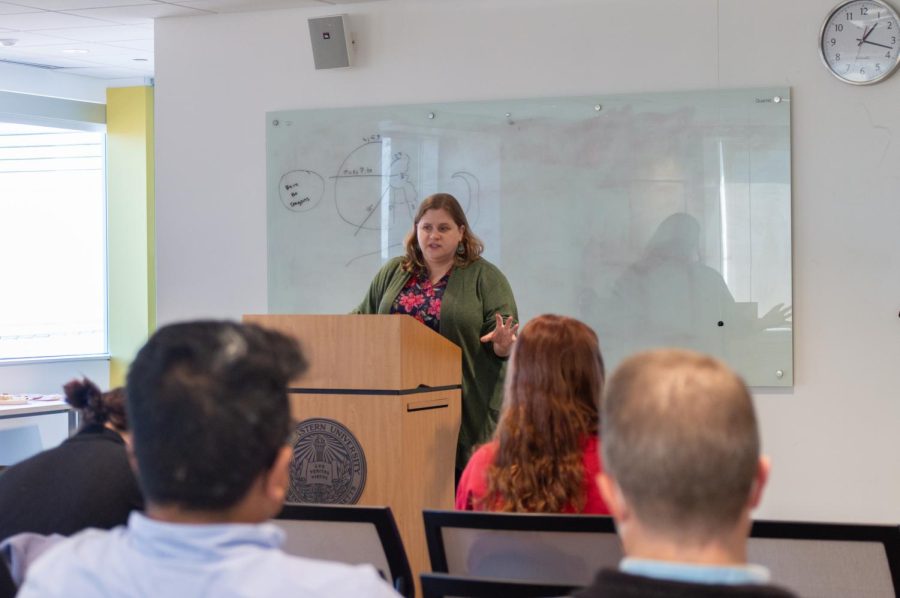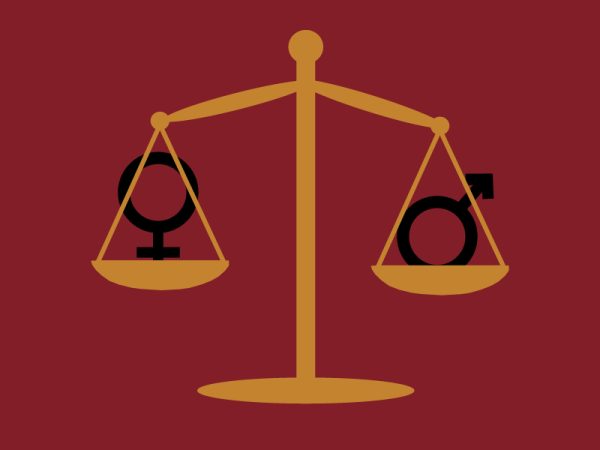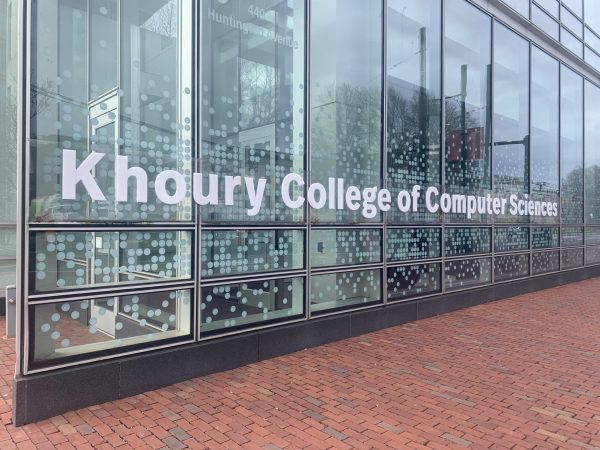Post-Roe world highlighted in presentation from Harvard professor
Harvard professor Elizabeth Janiak came to Northeastern Oct. 20 to give a presentation on the public health implications of overturning Roe v. Wade. Some of the research she shared comes from her work as the director of social science research at Planned Parenthood League of Massachusetts.
October 27, 2022
Elizabeth Janiak, assistant professor at Harvard Medical School and director of the T.H. Chan School of Public Health, gave a presentation Oct. 20 on the broad questions of how the overturning of Roe v. Wade will affect certain geographic groups.
Held both physically in Renaissance Park and virtually via Zoom, the presentation was a collaboration between the Institute for Health Equity and Social Justice, or IHESJR, and the Program in Women’s, Gender, and Sexuality Studies, or WGSS. Titled “Geographies of Inequality: How Increasing Abortion Restrictions Affect Population Health in the U.S.,” Suzanna Walters, professor and director of WGSS, and Alisa Lincoln, associate dean of research for IHESJR, kicked off the event by introducing Janiak.
Janiak commenced the presentation with an acknowledgement that as a white, cisgender woman in a state with abortion access, she has certain privileges compared to others who do not fall under those categories.
“I’m a very privileged person to have been able to live that reality, at a time when so many other people cannot,” Janiak said. “Particularly those who are most affected by intersecting dynamics of power and oppression around racism, sexism, classism, heterosexism and, of course, very wide geographic disparities.”
Janiak delineated the difference between elective and indicated abortions, which distinguish the reason for which an abortion is performed. An elective abortion is requested for non-health-related reasons, which she said disrupts gender norms surrounding women and mothers. An indicated abortion is performed for health anomalies in the mother or fetus, which supports gender roles.
“This is all about gender norms… Norms around how cisgender women are supposed to desire motherhood and are supposed to desire pregnancy at all times in Western culture, and in the United States in particular,” Janiak said.
Abortions often go underreported because of the stigma surrounding them, particularly elective abortions. Only 47% of abortions were reported in 2002, Janiak said, which was discovered by comparing self-reporting from women to the number of abortions reported by abortion clinics. This underrepresentation is partially due to a reluctance to report on behalf of women of color.
This stems from what is known as the “prevalence paradox,” in which an unwillingness to report abortions further stigmatizes receiving an abortion and categorizes it as abnormal. The cycle feeds into itself as abortions remain unrecognized out of fear of discrimination or shame.
“People under report and misclassify abortion behavior, which allows people to think abortion is nonnormative and perpetuates a social norm that it’s deviance,” Janiak said. “So then people who have abortions face discrimination, and then they become a fear stigmatization, and so they continue to under report.”
Due to the recent overturning of Roe, there is limited data available to fully illustrate the impact that the decision has had on those who seek to receive abortions, Janiak said.
“The data doesn’t exist yet. This is all rapidly evolving, changing every day,” Janiak said. “But even when we do have that updated census, we’re only going to be capturing legally provided abortions by licensed providers, which is not going to be everyone in the United States in a post-Dobbs landscape. So, this is where our measurement challenges begin.”
There are currently 14 states with total or six-week abortion bans in place. Based on data before the establishment of Roe, this will lead to an increased number of people traveling across state lines or out of the country to receive care. However, this will be available only to those who can afford it, leaving others to struggle with issues that otherwise would have been addressed by performing an abortion.
Some of the Northeastern students in attendance at the talk were health-related majors who said they learned a lot from her talk. Population health PhD student Sima Bou Jawde said she appreciated the focus on health disparities in the presentation, which she thought would benefit her in her future career path.
“We need to fill a gap in the health disparities that will for sure, as Professor [Janiak] mentioned, ensue after the Dobbs decision,” Bou Jawde said. “So we thought it was a very enlightening talk and it just showed that we need to keep the conversation going [for] those who do not have a voice when it comes to this dire topic.”
With the fall of Roe, Janiak said she believes many people who were formerly conflicted or uninformed on the issue are now paying more attention. This made it difficult for Janiak to decide what to present due to the breadth of information available.
For graduate public health student Sinead Hassan, the topics Janiak decided to present offered valuable information for action that can be taken by students and the general public.
“I was really interested in learning about medications for self termination, and then also all the resources that she listed … I think a lot of people would definitely benefit, especially from hearing more about [pro-choice] organizations,” Hassan said. “I just hope that more people listen to these kinds of conversations and take more action.”
Walters said that she hopes WGSS and IHESJR will be able to host more presentations surrounding abortion care, and that Janiak was able to answer the wide-reaching questions immediately following the overruling.
“The richness of her data and the richness of her background and the interdisciplinarity of it is crucial for us,” Walters said. “So we really wanted someone who could speak to the broad questions of reproductive rights and access and justice.”


















